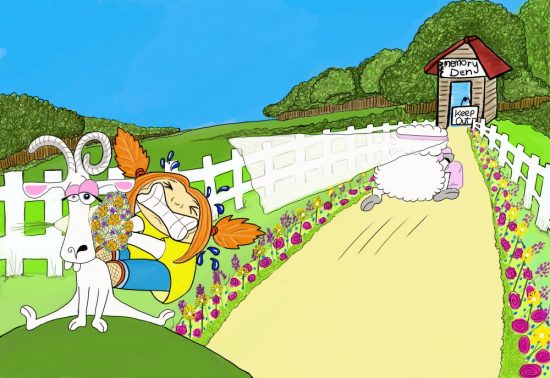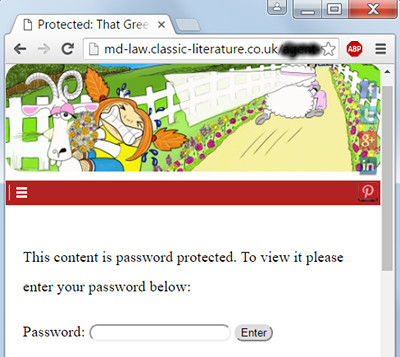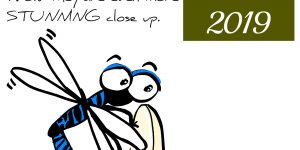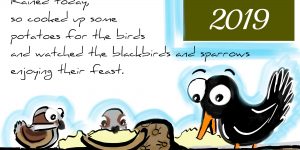We are seeking the services of the mythical creature that dwells in the shadows, the beast that is summoned forth with the magical incantation known as the dreaded literary agent query.
Yes, we are looking for a literary agent to represent our children’s picture books, but unlike creating picture books, querying agents ain’t a fun process!
Not interested in my inane ramblings, just looking for a list of literary agents to submit to, jump to my list of literary agents who represent picture books.
Creating Children’s Picture Book Manuscripts WAS So Much Fun
Collaborating with Marie (my wife the author/illustrator) on writing picture book manuscripts is awesome. Our twice daily walks are consumed by book talk, ideas for new books (which we forget by the time we get home), what illustration style Marie plans to try next, why all the stories I start become rhymes, what we liked about other picture books we’ve recently read… All fun, enjoyable stuff.
Then the conversation drifts to querying literary agents! The mood turns, dark clouds form, an impending doom descends around us as we grip one another’s sweaty hands a little tighter as we discuss the querying process… :-)
OK, it’s not that bad, but it’s not a simple task to find a suitable agent, there’s so many of them and the process for most unpublished authors is painfully slow, rejection after rejection or even worse no response at all!
Why Do We Need a Literary Agent?
Creating children’s books is a long term career for us and to get our manuscripts into the hands of the major publishing houses can only be achieved via a literary agent: many publishing houses are closed to non-agent submissions.
Without an agent our books will NOT be published by:
- Candlewick Press
- HarperCollins Children’s Books
- Macmillan Children’s Publishing Group
- Little, Brown and Company Books for Young Readers
- Penguin Young Readers Group
- Random House Children’s Books
- Scholastic Inc.
- Simon & Schuster Children’s Publishing
- and lots of others…
Even if this wasn’t the case, we’d still want an agent querying publishers. We want a career that spans decades and dozens of books (publishing 100+ books would be so cool) and an agent will get us the best long term deals with publishing contracts etc… We’d rather have 85% (most agents charge 15%) of a large pot of money than 100% of a small pot.
So far (July 2016) we have five complete picture book manuscripts and they aren’t all the same. Without an agent we (or I, Marie won’t want to do this) will have to research which publishers (from the list of publishers open to unsolicited submissions) are best for each manuscript. We can leave that task to the agent who knows which publishing houses are looking for each type of picture book manuscript. We could be creating picture books for 30+ years, couldn’t imagine researching publishers for dozens of picture book manuscripts!
It’s a no-brainer for us, the literary agent deals with the contracts, publishers, foreign rights etc… and we get on with creating and our author platform/promotion: AKA we concentrate on the fun stuff: I’m weird, I find promotion and building our author platform fun.
Querying Literary Agents
I’m about six weeks into finding a literary agent and I’m not enjoying the process. To be precise, I enjoy researching, BUT most of the research won’t achieve anything, because most agents will say no and I despise wasting time. It’s why I’ve created this webpage, at least the literary agent research (scroll down about 10 pages to find it :-)) will help others find their agent. Marie has been really smart on this one, she’s left the research and querying to me while she is happily being creative.
My approach on an important decision (like choosing a literary agent) is copious amounts of detailed research (Google is my best friend). I’ve no problem spending a couple of weeks researching an agent/agency, reading everything about them online, tracking down their websites (old and new), their social media activity (most are on Twitter, many are active on Facebook), checking out their clients (reading some of their books) and eventually writing a personal one off query.
For the first agent we submitted to I’d read hundreds of webpages: interviews, client websites etc… And it was all a waste of time, waste in the sense the agent wasn’t actively seeking new clients: concentrating on his current client list (I knew this before submitting, so was a long shot), he represents about 80 authors and illustrators, so very busy. I think I got our first agent query email wrong, see Literary Agent Query to Steven Malk : Fail for details, was too long in hindsight.
Similar amount of research for the next agent, this agent didn’t look at the webpage we’ve setup with relevant illustrations and other manuscripts. Strongly suggests the agent didn’t take much time considering the query: possibly as little as a few minutes to read the query and send a form rejection by email. I don’t have an issue with this, agents are running a business, if they don’t instantly click with a writing style why would they check an author/illustrator out in detail.
The third agent to respond (copy and paste form rejection) also didn’t visit the password protected webpage (that’s three in a row not doing detailed research). Interestingly with that query I didn’t include the manuscript text in the email (included a brief description only) so the agent (actually their assistant) didn’t view our work at all, but responded just to the description! Part of the rejection email:
Thank you so much for your query. While we found your concept to be engaging, we don’t feel that your work is right for ********** at this time. Due to a very full client list, we need to be especially selective about pursuing new projects.
That’s a bit annoying, but that’s life. The lesson to take away from this is don’t take rejections personally and don’t over think things.
The problem with this approach is it takes up a lot of time and the odds are the response will be a no for 95%+ of agent queries. There are so many people trying to break into publishing, all the power is in the hands of the literary agents (and publishers).
Literary agents are inundated with hundreds of manuscripts a year, they can’t possibly take on every unpublished author which queries them. Even if every manuscript received was a Harry Potter or Very Hungry Caterpillar in waiting (hmm, new idea for a children’s book “The Very Hungry Harry Potter”), they are going to pass on most of them. As I mentioned above, the first agent we queried has around 80 clients, that is a LOT of balls to juggle.
It’s time to change my research and querying approach.
What I ideally want is an agent reads the short query email (includes one full PB manuscript text), clicks the link to a password protected webpage (that’s just for agents to view) and sees the entire “That Greedy Goat Just Cannot Stay!” manuscript with our notes/plans and a few rough illustrations (in different styles) like the one below.
The manuscript text to this spread is:
I’ve seen him munching many things.
I’m sure he ate Mom’s wedding things!
For these reasons and many more,
it’s got to be that goat for sure.
The story text doesn’t match the illustration, the goat didn’t eat Mom’s wedding things. We thought we’d make finding an agent more of a challenge by submitting a manuscript that requires illustrations and explanation!
There’s also the text for four other manuscripts on the webpage if the agent wants to view them and some information about us.
So my current approach is:
Under half a days research per agent (reputable agency, can they sell), standard (very short) query email with the link to the password protected webpage and let the manuscripts/illustrations speak for themselves (if the agent visits the webpage: the first three agents didn’t look). After all, it doesn’t matter how great the agent query is if the agent doesn’t like your work.
If I don’t do this I’ll be spending all my time querying agents while Marie gets all the fun creative stuff, I’m not having that, I want my fair share of fun stuff!
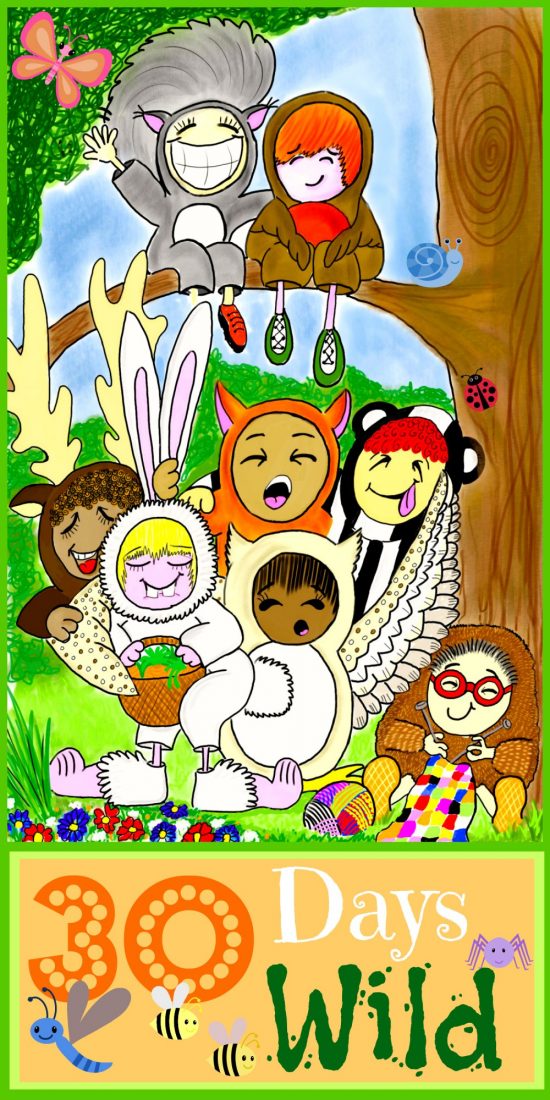
I’ve been busy researching agents, Marie’s been participating in the FUN 30 Days Wild Wildlife Trust Challenge.
Does anyone think that’s fair?
The password protected webpage** will also be used to inform agents when we have representation. When we find an agent will be a simple case of updating the webpage that we are no longer seeking representation. When a queried agent logs in they’ll immediately see there’s no need to research us any further and can move on to their next query.
** This website runs under WordPress (it’s a free blogging platform, highly recommended), when creating a WordPress Post or Page you can set it to be password protected. When a visitor visits the page they get a little password box which needs to be filled in before they can view the content.
If you plan to use this concept I suggest creating a WordPress Page not a WordPress Post. WordPress Pages (created under your WordPress Dashboard : “Pages” > “Add New”) are not automatically linked to from widgets etc… You have to add links to WordPress Pages under the “Appearances” > “Menus” section. Since I don’t want everyone visiting this site to see the page for agents, I’ve not added any menu links to it. So it’s a hidden webpage that’s password protected.
Interested to hear how other unpublished authors are choosing agents to query and how they are querying?
Literary Agents Who Represent Children’s Picture Books
Here’s the quick list of agents, click an agent link to jump to a list of relevant links (their Literary Agencies website, Agent Query page, Query Tracker page, Publishers Marketplace page) etc… for that agent.
Picture Book Literary Agents Quick List
Here’s my current literary agent short list in alphabetical order of literary agents that represent picture book authors.
- Heather Alexander of Pippin Properties
- Isabel Atherton of Creative Authors
- Stephen Barr of Writers House
- Emily Van Beek of Folio Literary Management
- Stefanie Von Borstel of Full Circle Literary
- Brenda Bowen of Sanford J. Greenburger Associates
- Jamie Weiss Chilton of Andrea Brown Literary Agency
- Elena Giovinazzo of Pippin Properties
- Karen Grencik of Red Fox Literary
- Kirsten Hall of Catbird Productions
- Elizabeth Harding of Curtis Brown
- Teresa Kietlinski of Bookmark Literary
- Lori Kilkelly of Rodeen Literary Management
- Jennifer Laughran of Andrea Brown Literary Agency
- Steven Malk of Writers House
- Holly McGhee of Pippin Properties
- Erin Murphy of Erin Murphy Literary Agency
- Edward Necarsulmer IV of Dunow, Carlson & Lerner Literary Agency, Inc.
- Lori Nowicki of Painted Words
- Anna Olswanger of Olswanger Literary
- Ammi-Joan Paquette of Erin Murphy Literary Agency
- Alexandra Penfold of Upstart Crow Literary
- Rubin Pfeffer of Rubin Pfeffer Content
- Paul Rodeen of Rodeen Literary Management
- Jennifer Rofé of Andrea Brown Literary Agency
- Kathleen Rushall of Andrea Brown Literary Agency
- Abigail Samoun of Red Fox Literary
- Rebecca Sherman of Writers House
- Kelly Sonnack of Andrea Brown Literary Agency
- Rosemary Stimola of Stimola Literary Studio
- Caryn Wiseman of Andrea Brown Literary Agency
Literary agents change their focus from time to time, always check what they are looking for at the time you plan to submit. Not all of these will be open to submissions all the time, see the comment Literary Agents Submission Status to see this list of agents submission status.
Literary Agent Rejections are the Norm
I expect to get a lot of rejections, that’s the nature of the business. No need to feel down about a rejection, there’s over 7.4 billion (7,400,000,000) people on the planet, even the most popular books are enjoyed by a small minority of people.
Consider The Lord of the Rings (published 1954–1955) has been sold around 150 million (150,000,000) times: that’s the top selling book. Even if all 150 million buyers are alive today (they aren’t) it means just over 2% of ‘people’ have bought a copy of the top selling book! Even if each copy of a book is read by 2 people it’s still only 4% of people like The Lord of the Rings enough to have read it. This assumes every copy has been read, we own a copy and out of five people (myself, my wife and three sons) who could have read it, only one has (wasn’t me, was son number 1 in his teens).
The top selling picture book The Tale of Peter Rabbit (published 1902) has been sold around 50 million times. Considering many of the 50,000,000 copies would have been sold decades ago, there will be under 1% of people alive today who have even held a copy of The Tale of Peter Rabbit book in their hands, let alone read AND enjoyed it! We have an entire set of Beatrix Potter books, we’ve all read those :-)
Most people are not going to like what you’ve wrote, that includes literary agents. We are looking for that tiny minority who like what we like AND can see enough people on the planet who will also see things that way, so trying to sell your work makes financial sense. 0.1% of the worlds population is 7,400,000 people, we don’t need everyone to love what we do to make a good living from it.
Wish us luck.
David Law
Related Articles:


